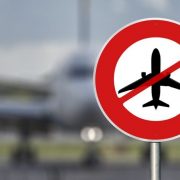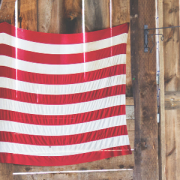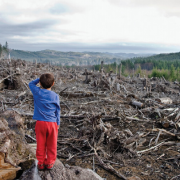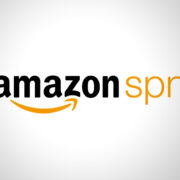Last Monday, a press release from the U.S. Department of the Treasury stated, “Today, on International Anti-Corruption Day, the U.S. Department of the Treasury’s Office of Foreign Assets Control (OFAC) is targeting corrupt actors and their networks across numerous countries in Europe, Asia, and Latin America. Today’s action, pursuant to Executive Order (E.O.) 13818, which builds upon and implements the Global Magnitsky Human Rights Accountability Act, and targets perpetrators of serious human rights abuse and corruption.”
According to an article posted in The Phnom Penh Post, “The Ministry of Foreign Affairs and International Cooperation [of Cambodia] expressed strong dismay on Monday over the designation of Cambodian tycoon Oknha Try Pheap and General Kun Kim under the US’ Global Magnitsky Act.”
The article continues, “Pheap has used his vast network inside Cambodia to build a large-scale illegal logging consortium that relies on the collusion of Cambodian officials, to include purchasing protection from the government, including military protection, for the movement of his illegal products,” the U.S. Treasury Department said.
Mech Dara, the author of the article, claims the U.S. Treasury Department asserts that “Pheap had used the Cambodian Military to enable his timber trafficking activities and sell to buyers in Vietnam, China, Europe, and Russia. The Office of Foreign Assets Control (OFAC) designated 11 Cambodia-registered entities it said are owned or controlled by Pheap”.
Regarding Kim the article states, “The U.S. Treasury Department said he was instrumental in developing projects in Koh Kong province and had reaped significant financial benefits from his close relationship with a Chinese state-owned entity. Kim had used Royal Cambodian Armed Forces (RCAP) soldiers to ‘intimidate, demolish, and clear-out land sought by the PRC-owned entity’, it said, referring to the official acronym for China.”
The full article can be read here – https://www.phnompenhpost.com/national-politics/us-imposes-sanctions-oknha-pheap-and-kun-kim
From the U.S. Department of the Treasury Press Release (https://home.treasury.gov/news/press-releases/sm849):
TRY PHEAP
Try Pheap (Pheap) is designated for being a foreign person who is a current or former government official responsible for or complicit in, or directly or indirectly engaged in, corruption, including the misappropriation of state assets, the expropriation of private assets for personal gain, corruption related to government contracts or the extraction of natural resources, or bribery. The United States prioritizes anticorruption efforts as a key part of its vision for a free and open Indo-Pacific, recognizing good governance as integral to U.S. foreign policy and national security interests and in line with U.S. values.
Pheap has used his vast network inside Cambodia to build a large scale illegal logging consortium that relies on the collusion of Cambodian officials, to include purchasing protection from the government, including military protection, for the movement of his illegal products. For example, Pheap used the Cambodian military to enable his timber trafficking activities and sell to buyers in Vietnam, China, Europe, and Russia. The support of these officials makes it difficult for local authorities to take lawful action against Pheap, as in one example, Cambodian National Park officials were paid by Pheap to keep his operations secret from the international community.
In addition to the designation of Pheap, OFAC is designating 11 Cambodia-registered entities that are owned or controlled by Pheap: Try Pheap Group Co., Ltd.; M.D.S. Import Export Co., Ltd.; Try Pheap Dry Port Co., Ltd.; Try Pheap Engineering & Construction Co., Ltd.; Try Pheap Grand Royal Co., Ltd.; Try Pheap Import Export Co., Ltd.; Papa Petroleum Co., Ltd.; Try Pheap Property Co., Ltd.; Try Pheap Travel & Tours Co., Ltd.; M D S Thmorda S E Z Co., Ltd.; and Try Pheap Oyadav S E Z Co., Ltd.
KUN KIM AND HIS FAMILY NETWORK
Kun Kim (Kim) is designated for being a foreign person who is a current or former government official responsible for or complicit in, or has directly or indirectly engaged in corruption, including the misappropriation of state assets, the expropriation of private assets for personal gain, corruption related to government contracts or the extraction of natural resources, or bribery.
Kim was a senior General in the RCAF and was instrumental in a development in Koh Kong province and had reaped significant financial benefit from his relationships with a People’s Republic of China (PRC) state-owned entity. Kim used RCAF soldiers to intimidate, demolish, and clear-out land sought by the PRC-owned entity. Kun Kim was replaced as RCAF Chief of Staff because Kim had not shared profits from his unlawful businesses with senior Cambodian government officials.
Cambodian elites like Kim use their familial networks to create shadow structures to shield ill-gotten assets. Such corruption undermines the ability to realize the vision for a free and open Indo-Pacific that we share with ASEAN and other Indo-Pacific partners. In addition to Kim, OFAC designated three members of Kim’s family: King Chandy (Chandy), Kim Sophary (Sophary), and Kim Phara (Phara), for acting or purporting to act for or on behalf of, directly or indirectly, Kim. Five entities that are owned or controlled by these individuals were also designated today:
- 7 Makara Phary Co., Ltd.is registered in Cambodia, and is owned or controlled by Sophary.
• K D Rubber Plantation Co., Ltd. is registered in Cambodia, and is owned or controlled by Chandy.
• Cambo Elite Security Force Co., Ltd. is registered in Cambodia, and is owned or controlled by Sophary.
• Romdoul Capital Pawn Co., Ltd. and Romdoul Development Co., Ltd. are registered in Cambodia, and are owned or controlled by Phara.











